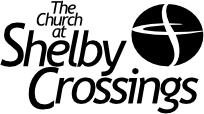Social Media Distancing
I am sure by now you have heard that this past Monday, the social media platforms Facebook, Instagram and WhatsApp shut down for several hours. There was much weeping and gnashing of teeth all around, as the world tried to remember what it was like to function without looking at their phones. Many folks headed to Twitter, somewhat ironically, to see what was up, while the instant messaging platform Telegram added 70 million users while the other apps were down. There was no truth to the rumor that MySpace used the opportunity to make a big comeback.
Eventually, it came back online, prompting the satirical website Babylon Bee to produce an article with this headline: "In Major Disaster for Humanity, Facebook Comes Back Online."
In light of the big story this week about a whisteblower trying to expose some of Facebook's alleged corrupt practices, the conspiracy theorists were out in full force. The official explanation for the shutdown was that "the BGP routes serving Facebook's authoritative DNS were withdrawn, rendering all Facebook domains inaccessible," whatever that means. Mr. Zuckerberg and his stockholders reportedly lost as much as $7 billion in ad revenue during the time the apps were down.
After the initial panic, what was left of social media did what it does, and made jokes. One person tweeted that without Facebook, things got so bad that he had to go door to door in his neighborhood to show everyone his dinner. Another tweeted, "Facebook is down. God help us if there's a photogenic sunset tonight!"
My favorite came from a friend, who wrote: "Facebook has been down for three hours now, and I've already forgotten everyone's vaccination opinion. We will have to start from scratch I guess."
Actually, I was kind of hoping that some people would realize that life was not that bad without it, and that contrary to popular belief, it's okay to go a few hours without logging on to your account. It would even be okay if people put down their phones and actually had face-to-face conversations with friends and family members. I know, that may be asking a little much.
All jokes aside, those social media platforms do have their place, and they can be useful in helping us keep up with old friends and disconnected family, sharing information (as we do as a church), and even for storing photos of your kids and grandkids, which is its primary use for me. With the demise of the local daily newspaper, social media is also where I get my news--particularly in sports coverage. And Facebook Live and YouTube have sure been effective tools over the last 18 months for us to share our Shelby Crossings livestream with our extended church family and community.
But there are also plenty of negatives from the stranglehold that apps like Facebook, Twitter and Instagram have on our lives these days. Most basically, they feed our pride, with self-centered cries for attention, and an almost addictive need for "likes." They also feed our discouragement, as we constantly compare ourselves to others who always have it together (or so it seems). And because there is no filter, we tend to communicate our opinions with an attitude from behind a screen, leading to a toxic divisiveness on just about every issue, from politics to pandemics. And of course, it's a perfect platform for the spread of dis-information from both sides of the political and cultural spectrum.
Not to mention the behind the scenes workings within the different social media apps that are actually designed to manipulate our choices, emotions and behavior, and spread things like "fake news" and conspiracy theories, all to enhance their profits. If you haven't seen the Netflix documentary "The Social Dilemma," I would certainly recommend it. It will open your eyes, for sure.
More than anything, social media has all become a huge distraction to our lives. It is strangely seductive and thus addictive, and in the end, it's easy to forget that it is not "real life." I can only imagine the cost to productivity in the American workplace, and I know it keeps many of us from focusing on things that really matter.
I am reminded of what John Piper said about social media several years ago: "One of the great uses of Twitter and Facebook will be to prove at the Last Day that prayerlessness was not for lack of time." Or this tweet from Paul Washer the day before the Facebook crash: "I challenge you: over a week's time, compare your screen time and your prayer time." That's a pretty valid challenge for all of us.
So consider this week's little time-out from Facebook and Instagram as a gift, a respite from the insanity, and perhaps an invitation to re-evaluate how much time you spend there to begin with. Maybe it's time for a little "social media distancing." We all need to ask ourselves if our social media use is glorifying to God, edifying to others, and encouraging our walk with Christ. If not, perhaps we need to consider shutting down our accounts; or at the very least, planning some regular times of social media "fasting" into our schedules to make sure we keep a Christ-focused perspective.
In the end, Facebook, Instagram, Twitter, WhatsApp...and even Pinterest (yeah, I said it!), won't last, but His kingdom will."If then you have been raised with Christ, seek the things that are above, where Christ is, seated at the right hand of God. Set your minds on things that are above, not on things that are on earth. For you have died, and your life is hidden with Christ in God." (Colossians 3:1-3).
I'm praying for you, and I look forward to seeing you Sunday.
--Pastor Ken
